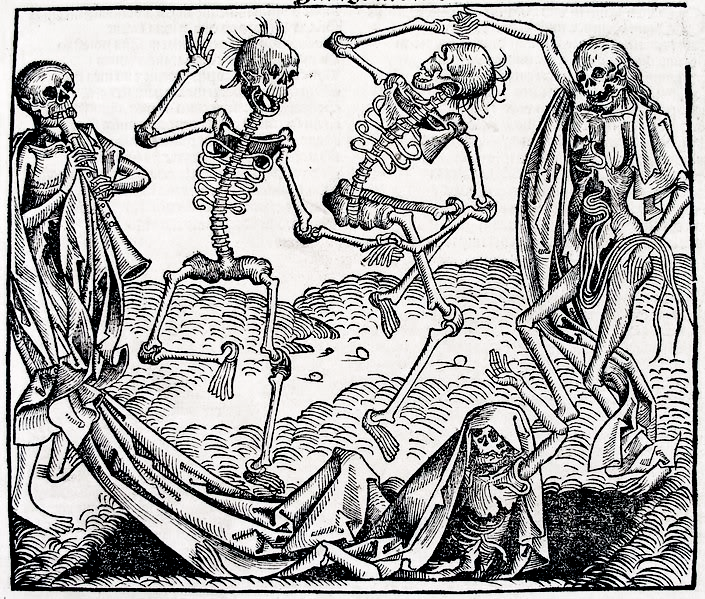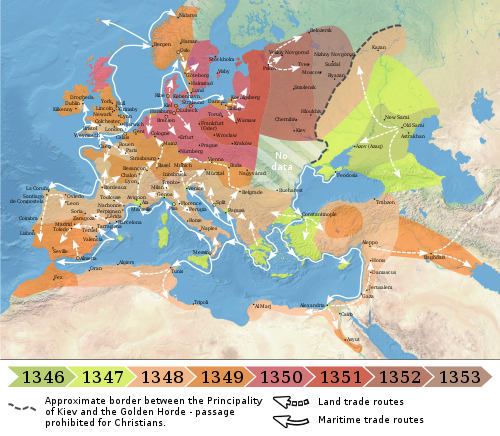
Minette Walters is an award-winning novelist whose specialty is crime. I enjoy her work so I ventured into her latest, called The Last Hours. It is a departure for Walters, in some respects, because it travels back to the 1400's and the period known as the Black Death, or the Great Plague. It's impossible to establish exact figures for the deaths from this plague, but it could have been up to 200 million and at least a quarter of the world's population. It took 200 years to recover from this devastation.
This novel focuses around in one feudal community with the intriguing name of Develish, Dorsetshire, which is under the leadership of Lady Anne when her husband, Lord Richard, and his retinue dies of the plague while visiting another town.
Lady Anne is an enlightened woman who already treats the serfs with a respect not normally accorded to them. They eat better and as a result they are more able to work and produce for their lord. When the plague sweeps across the region she wisely keeps her subjects within the walls of the keep and encourages them to follow strict hygiene protocols. Lady Anne is not a conventionally religious person, although she knows her scripture and tends toward the Christ of compassion rather than a capricious God of judgement. She dismisses the "wrath of God" pronouncements of the local priest.

Walters does an interesting job of addressing the existential earthquake the Black Death wreaked upon Europe. Not only did it destroy economies and change social relationships, it led people to question why God would allow this to happen and why so many who were innocent of sin, such as children, would be struck down.
This is a 547 page novel, and at times it seemed to be searching for its true identity, although there are elements of mystery and suspense in the story to engage us. It did get me thinking. We live in a time when we seem to be unwilling to accept the consequences of our actions in terms of gobbling the Earth's resources and we ignore the "signs of the time" when it comes to climate change> Will we find ourselves in the throes of our own existential crisis as the planet's systems and cycles are disrupted to the point that population collapses. Who will we blame?
In the last pages of the novel Lady Anne writes in her journal: "Was there ever a night such as this? God raised me from despair to joy and yet, despite His kindness I feel my spirits lowering again. It is truly said that the darkest hour is just before the dawn."
There is actually a sense of "dawn" in this book, despite the grim subject matter, and it's worth reading, I can't help but wonder whether Walters is offering up something of a parable from the 14th century to address the challenges of the 21st.

No comments:
Post a Comment